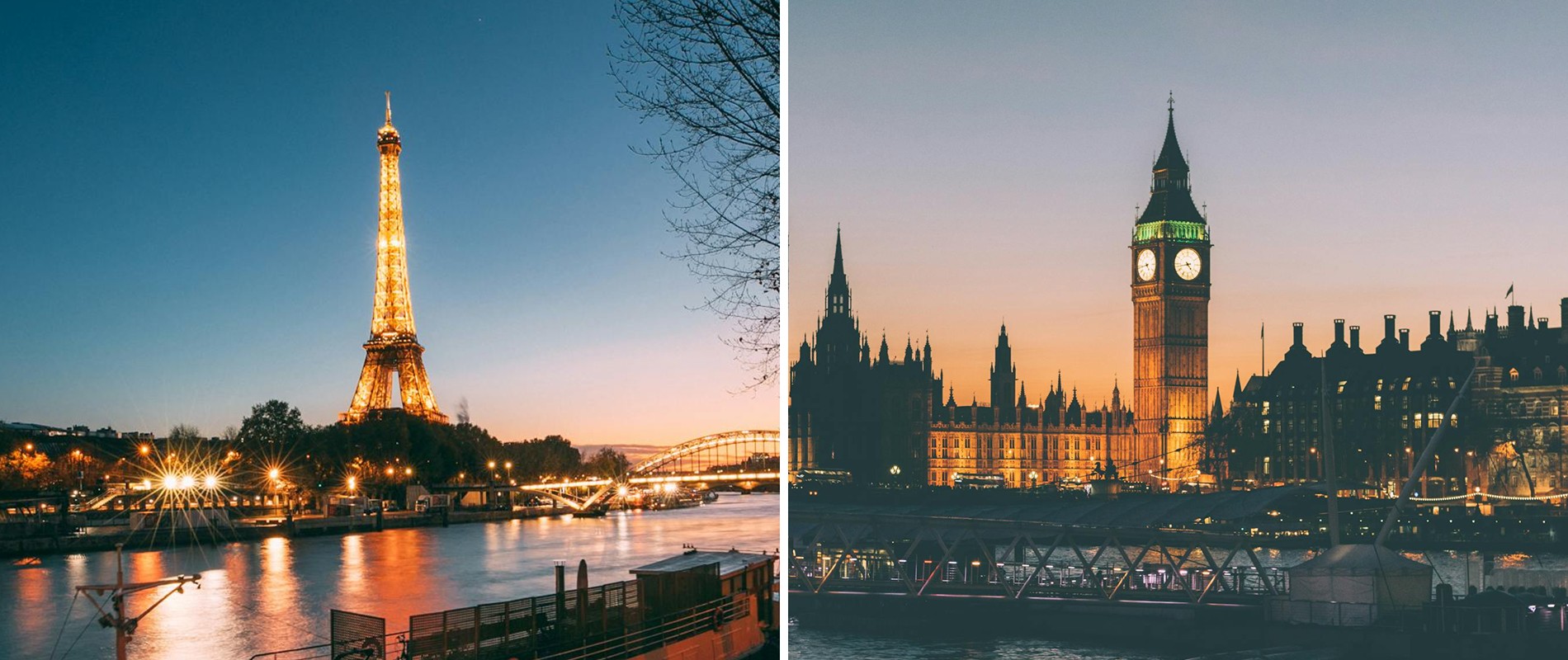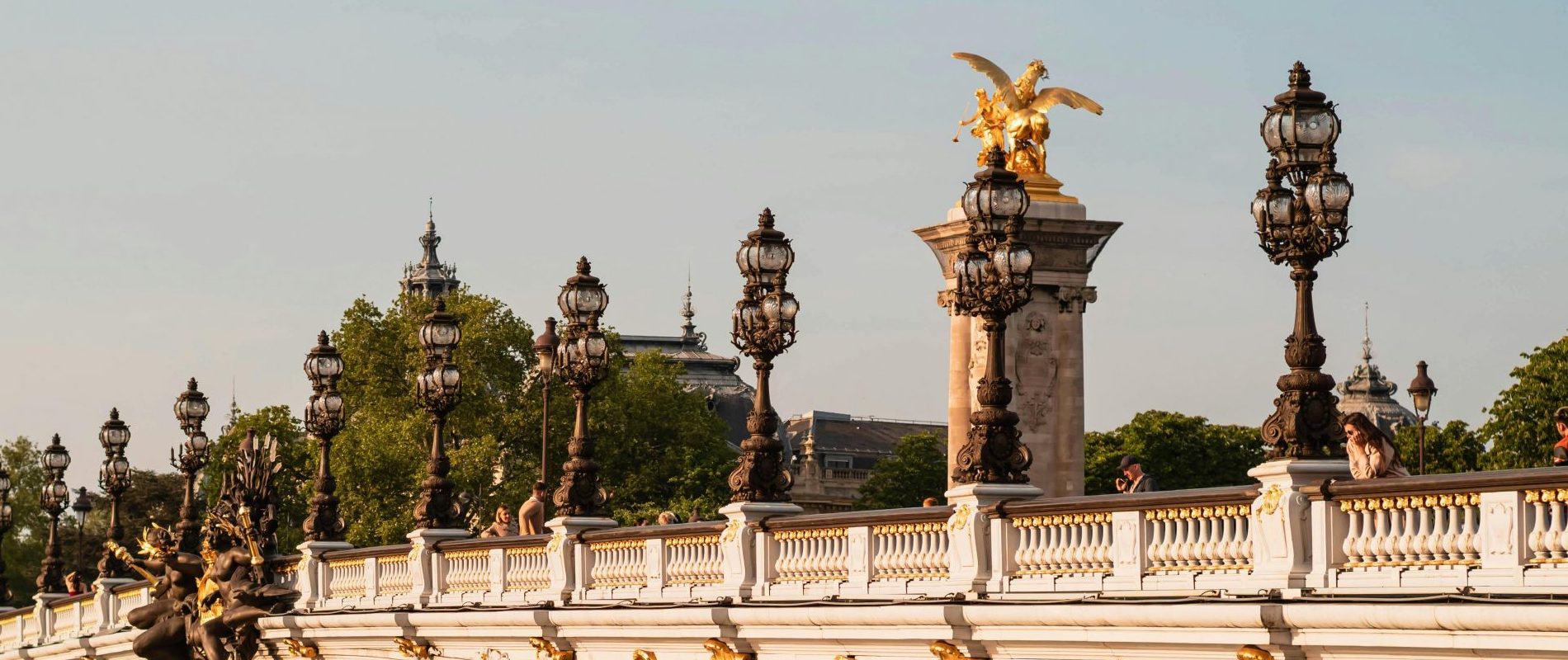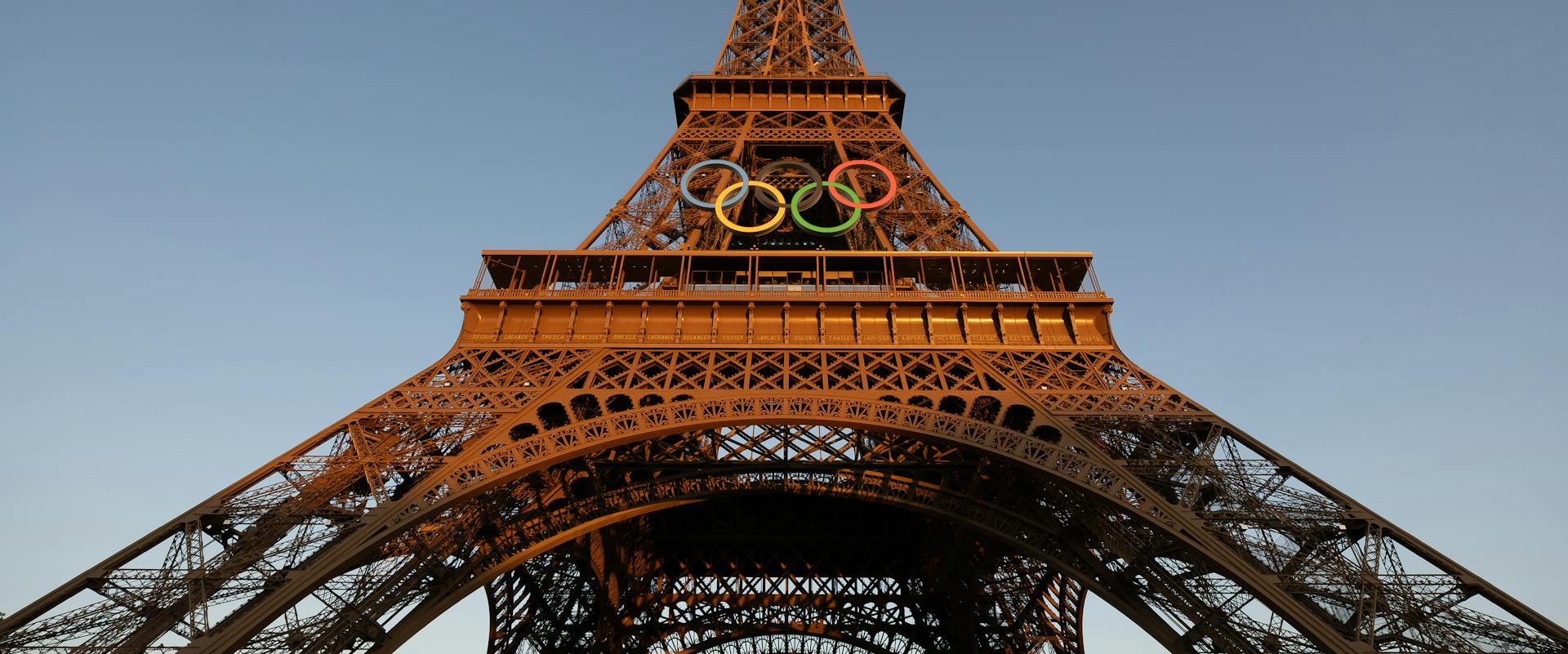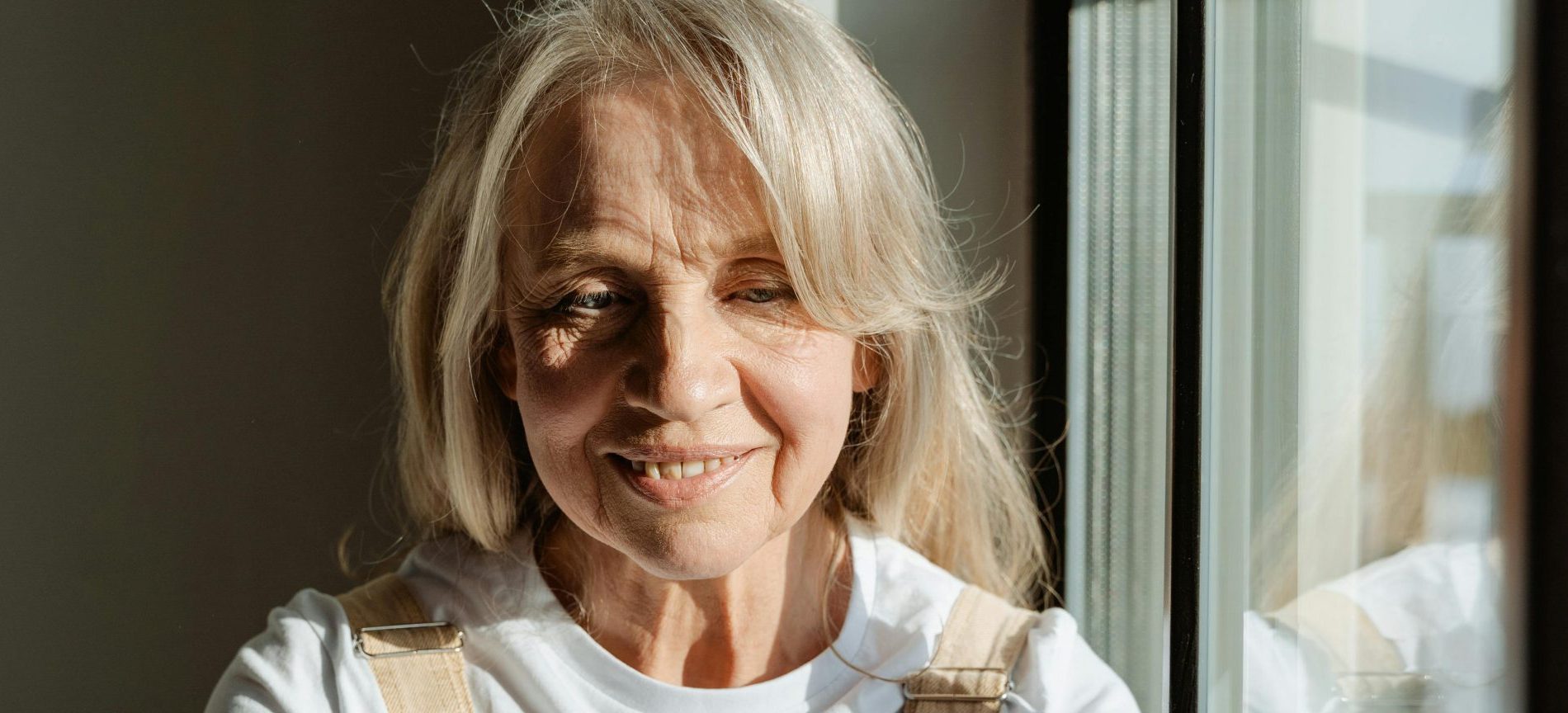
The more we dive into the differences between living in France vs the UK, the more we see that they might be fraternal twins. The similarities are as clear as water throughout the time. Although they grew apart as time passed, a wire of invitations to congresses and alliances kept them together. As with every sibling, there’s rivalry and a lot of love. Then, to help you decide whether a glass of fine Bordeaux or a nice beer at cellar temperature fulfils your goals, and still, if you’re aiming for work purposes or adventures. We want to dive deeper into the subject, focusing our energies, especially on the matches France vs England and London vs Paris for the finals. So, take your seat and get ready for the derby.
The main difference in the cost of living between France and England lies in housing and food. Generally, rent and property prices are higher in England, especially in London, than in France. Grocery prices are relatively comparable, but England offers cheaper options for budget shopping.
The price of meals depends greatly on each preference and the city they are in, especially in France, if you live in the popular cities. England offers a diverse range of international foods at lower prices, and just like France, the food can also be more expensive depending on whether you are in a popular city like London. However, while England may be more affordable, French dining offers unique, quality culinary adventures. So, regarding pricing, England is more budget-friendly, but France takes the lead in the gastronomic experience.
In Britain, meal times are more regular: breakfast at 8 am, lunch at 12 pm, and dinner around 6 pm. On the other hand, in France, it is a bit different. Some of the main meals are still made at the most common times. The significant difference comes with dinner, which usually starts around 7 pm/ 8 pm, which might impact some, especially the ones who are used to sleeping around this time. And regarding work, having longer lunch breaks sets France apart from England. French people usually take an hour’s break for lunch, while Bristish people typically use half of that.
Eating out can be typically more expensive in France, particularly in Paris, due to the emphasis on high-quality, fresh ingredients. France also differs from the UK in the sense of flexibility. Lunchtime is long, but you’ll have difficulty getting food served outside of the usual hours, and restaurants often don’t open in the evening until much later than in the U.K. Many tourists in France get caught by surprise by this. You may find them lurking around outside closed restaurants at 6:30 p.m.
And while we’re in the nourishment department, groceries! I’m not speaking of supermarkets in general, but for specific items. What is cheaper in France than in the UK? Cheese, wine, and fresh produce… My friends, France might tip the scales if you’re a foodie.
First, everyone’s question is the cost of living in France vs the UK. If we’re talking numbers, it’s not just about the euros and pounds; it’s about what you’re getting for your hard-earned cash. Living expenses in France can vary wildly, just like in the UK, but there are some general trends we must pay attention to.
In many French cities, your euro stretches further than a pound in the UK. Rent, for instance, can be cheaper, especially outside of Paris.
But before you start daydreaming about those French markets, remember utilities and transport. While generally, you might save on rent, the living expenses in France, like electricity or internet, can be higher. What about public transport? It’s a toss-up, depending on where you live. Read more on the next topic.
In France, they have accordion buses and double-decker trains. In contrast, England has double-decker buses and hackney carriages (Black Cabs). A fun fact about the Black Cabs is that they are taller because they were expected to accommodate a person wearing a bowler hat when they were first introduced in the 17th century.
Public transportation costs are significantly higher in England than in France. For example, buying a bus ticket on the same day as your journey in France costs the same as a month before. The pricing is always the same, regardless of the day you buy. If you wait until the last minute to buy your ticket in England, the price will increase exponentially, which can be costly.
Now, speaking of metro cards, there’s the Navigo Pass in Paris, which gives you access to all the buses, trains, and metros. A month’s access to all districts in Paris will cost you € 84.10 for zones 1-5. On the other hand, in London, the Oyster card, giving you access to all the districts for a month, can go up to £164.00 for zone 1 only.
Located in Western Europe and founded in 1792, France is known for its profound history, cultural influence, and culinary artistry. It’s a democratic republic celebrated for landmarks like the Eiffel Tower and regions from lush countryside to Mediterranean beaches. France is renowned for its wine, fashion, and ideals.
Also located in Western Europe, the United Kingdom became what we know today after its first union in 1707, followed by Northern Ireland joining the party in 1922. It is classified as an island nation composed of England, Scotland, Wales, and Northern Ireland. Its irresistible charm is filled with historic landmarks, royal traditions, and vibrant cities. The UK is a parliamentary democracy with a constitutional monarchy.
The 7th economy in the world, with a growth of +1%. France uses the Euro (€) as its official currency. France has 640.679 square kilometres and is the 42nd largest country in the world. It’s divided into 13 administrative regions that comprise the mainland or the “metropolitan”. Besides that, France also has 13 overseas territories spread worldwide. France has 67 million citizens, with 0.2% growth annually. Its capital, Paris, has 2,165,400 (City) and 14,684,000 residents. In France, 88% speak French as their first language, 94% speak French in total, and 39% can speak English. France’s unemployment rate is 7.5%. France is in the 6th in the most significant exports in the world. France has a slightly lower HDI of 0.903, making it the 28th most developed country. The annual income in France is about $ 45,600 per year.
The 6th economy in the world, with a growth of +1.4%. Its official currency is the British Pound Sterling (£). The UK, with its 242.495 square kilometres, is the 78 most significant country in the world. It’s divided into 4 constituent countries. The UK also has 14 territories around the globe, plus 3 crown dependencies: Isle of Man, Guernsey and Jersey. The UK is home to 67,081,000 people, and the annual growth rate is 0.6%, which is very close to the French numbers, as is the number of citizens. London, the capital, has 8,982,000 (city) citizens and 14,257,000 (metro areas). The language in the Kingdom is mainly English, with 98% English speakers, but there are also many others, like Irish, Scots, and Cornish. The unemployment rate currently is 3.8%. It’s the 5th largest among the exporters. The UK has an HDI of 0.929, making it the 18th most developed country in the world.
Currently, job opportunities in France are focused on tech, healthcare, and tourism, with competitive markets in major cities. England, particularly in London, offers many opportunities in finance, tech, and creative industries. Both countries have robust job markets, but sector strengths vary.
Healthcare is top-notch in both countries, though the systems differ. The French healthcare system is called Sécurité Sociale. Their healthcare requires more upfront from your wallet, but reimbursements are typical. It has high quality and accessibility to all residents through state-funded and private systems. The United Kingdom operates a National Health Service (NHS). Everyone, regardless of nationality or immigration status, is entitled to receive primary care and emergency services. While the NHS is funded through taxation, making most services free at the point of use, there are some aspects of NHS service for which there may be charges, such as dental care, eye tests, and prescriptions. However, exemptions and support are available for certain groups, such as children, pregnant women, and those on specific benefits.
The French public education system is robust and accessible. The UK offers diverse education options and languages, but university fees for non-residents can be steep.
It is a pleasant Odyssey through time. Both cultures, rich in heritage and global influence, offer unique windows into the complexities of human creativity and social evolution.
Reflecting ancient astronomical knowledge, marking solstices or aiming for religious purposes, Stonehenge dates back to 3000 BC. and is marvellously placed as a prehistoric monument in England. Constructed a millennium earlier than Stonehenge in England, the 3,000 meticulously arranged stones of the Carnac Alignments remain a mystery to historians. Kings and Queens have all walked on those paths to add to their mysteries of how the monarchy has prevailed for so long in these lands. Presenting a fascinating study of contrasts and parallels. With its dramatic revolutions, regal dynasties, and cultural renaissances, France paints a picture of tumultuous change and enduring legacy. Across the waters, England unfolds its saga, marked by its formidable maritime empire, the subtle strength of constitutional monarchy, and the steadfast traditions that have shaped the modern democratic world. While charting distinct paths through the corridors of time, both nations have marked their indelible contributions to the fabric of global history, culture, and thought.
We observe distinct perspectives on life mirrored in the behaviours of their citizens. In France, life is often approached with an emphasis on enjoyment and expression, reflecting the country’s joie de vivre. Social interactions are marked by formal courtesies and a deep appreciation for the arts, cuisine, and conversation, embodying a collective celebration of the moment. Conversely, English culture champions a more reserved attitude supported by values of practicality and understatement. The English ‘stiff upper lip’ epitomizes a composed approach to life’s fluctuations, favouring subtlety over-exuberance, also known as “take a deep breath and stay calm”. Public life is characterized by politeness, a strong sense of privacy, and an enduring love for quiet traditions and the comforts of home. The leisure of going out with friends after work In England is pub culture-centred, with locals enjoying pints and pub quizzes. In contrast, France prefers leisurely sips in cafés or bars.
It’s a blend of historic charm and contemporary boldness. England and France reveal vibrant scenes where innovation meets tradition. In England, the modern, challenging societal norms while the symphonies of its classical maestros echo through concert halls, illustrating a society that reveres both rebellion and refinement. Meanwhile, France’s art scene thrives, echoing the colourful sounds created by Claude Debussy, shifting to cinematic achievements, incorporated by gems like ‘Portrait of a Lady on Fire,’ complementing its historical dedication to visual arts, showcasing a relentless pursuit of emotional depth and visual storytelling. Both cultures cherish their historical roots while boldly stepping into contemporary dialogues, crafting art that resonates globally and transcends time. Streets crossed by Charles Dickens now coexist with the enigmatic street art of Banksy, while the timeless adventures of ‘Doctor Who’ intersect with the solemn notes of classical composers like Edward Elgar. This creates a dynamic cultural landscape where tradition and modernity converge.
London and Paris are two of the most impressive cities in the world. London is the largest city in the country, the capital of England and the entire United Kingdom, and Paris is France’s capital and its largest city. They held revolutions and were home to great thinkers. These are the places where many scientists and philosophers used to gather in the past. Together, they influence the whole world, predominantly in their ability to create movements, tendencies, and even a sense of self. Paris and London are very diverse due to their multicultural populations. They are proud owners of well-known landmarks. Once in London, you have many to pick, from Buckingham Palace to The London Eye. If you step foot in Paris, you can visit the Eiffel Tower, the Louvre Museum, and the Notre Dame. London has an enormous number of Parisian residents. Although living in these capitals is expensive, London is the more affordable. Both offer high-quality education, but London wins as the number of distinguished universities is more significant for the Londoner side. To sum up, Paris and London were and continue to be crucial in unfolding the secrets to the evolution of society globally.
“The style. When I walk on the streets, French look fashionable even if I am going out for groceries.”
“As an Englishman who lived in France for 8 years, I know that the French are more classically stylish, whereas the English/British tend to take more risks with their choices. Which may or may not pay off”.
“We’re a funny nation with a good sense of humour. I’ve lived in other countries and always missed home and how people behave in the UK. I think the humour is unique.”
“The strikes are a really important factor here. In Britain, we don’t talk much about these work strikes. In France, however, the majority of citizens talk about them. These strikes can endure for weeks, even months, sometimes.”
“I think the UK is such an insular country, you know? We’re marvellous because of the Industrial Revolution, for a start. We started all that off. We were well ahead at that point. The only thing we must be more careful about is the inflated view of being English, excluding all other cultures and other countries.”
“As a Brit, I’d say French people are more concerned about how they look in public than many Brits.”
“In England, people will stop to greet you and your dog. Outside of London, for example, people will smile at you. When I was in France, I witnessed fewer of these situations. However, people tend to accept if you try to be sympathetic and say ‘bonjour’. It’s a matter of taking the initiative, and people will reciprocate. “
“I see the English people as Posh, at least most of the time. I’m not, though(giggles)!”
“One thing that comes to mind is teasing! We love to tease our friends as a healthy, playful thing, but you must know to whom you can banter. It’s not a good joke if just you are laughing”.
“There are many CCTV cameras in England, but they are seen less often in France.”
“When walking around late at night in England, we commonly find tipsy fellows. It didn’t happen much to me when I was in France.
“Greetings in England are still marked by a good, old handshake or a hug, but people are more enthusiastic when meeting someone. The Frence often greet you with a kiss on each cheek. “
“As a foodie, I notice that the sliced bread in England is marvellous, but all the other kinds win 10/10 in France. The cheese in France is more scented with a strong personality. English cheese is more serene but not less remarkable.”
“I love our quirks, all the love for tea, marmite, beer, Sunday roasts, and a fully English breakfast. Our personality might be a bit shady when generally viewed by the rest of the world, a bit of a superiority complex. I’m not like that and tend to be as far as I can from this behaviour.”
So far, we’ve walked through voluptuous ground. Now, it’s plain to see that both destinations offer enough reasons to hope for an intense life experience. It’s like being at the heart of the action. If you need more proof, check our other articles on relocating to France and relocating to the UK, which stress particularities in both countries. After deciding where you’ll adventure next, we are here to help with your transition. VanOne International Movers specialises in relocating internationally. Contact us today to get a quote.
 Is a Good Scenario for Expats to Invest in France Right Now?
Is a Good Scenario for Expats to Invest in France Right Now?Is a Good Scenario for Expats to Invest in France Right Now? Investing in France can be an…
 What is the Paris 2024 Legacy Plan?
What is the Paris 2024 Legacy Plan?What is the Paris 2024 Legacy Plan? There is nothing better than the Olympic games to restore what…
 Can a UK Pensioner Retire to France? Retiring in France Guide
Can a UK Pensioner Retire to France? Retiring in France GuideCan a UK Pensioner Retire to France? Retiring in France Guide A significant number of British expatriates in…
 What is the Appeal of France?
What is the Appeal of France?What is the Appeal of France? France continues to captivate the hearts of expats from around the world.…